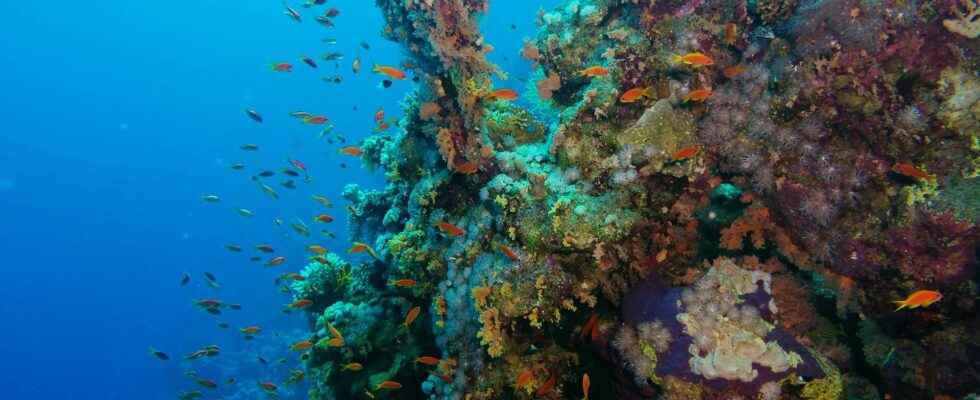You will also be interested
[EN VIDÉO] European marine biodiversity, endangered? Ocean biodiversity is in dangerous decline. According to UNESCO, more than half of the world’s marine species would be threatened with extinction by the end of the century if significant changes are not made. In the Eastern Mediterranean, marine biologists are seeing dramatic changes that could spread across the world and are sharing them with us on video.
In 2015, when the Paris Agreements on the climatethe objective was to limit the global warming at 1.5°C compared to the industrial era. But today, when we have already reached +1.1°C, even 2°C seems unattainable. For this, it is necessary to drastically reduce the emissions of greenhouse gas (GHG), a reduction which for the moment has only slightly begun. But what would be the concrete consequences on the biodiversity ? They are many. On the earth, but not only. Because the seas and oceans warm up with it, lowering their oxygenation, but also acidifying.
A publication in the journal Nature Climate Change looked specifically at the future of marine life. For this, the researchers studied nearly 25,000 specieswhose ” of the Piscesof the bacteriaplants and protozoa living in the first 100 meters of the world’s oceans”explains a communicated. They then modeled their evolution according to the different scenarios issued by the IPCCwhich envisages up to 5°C of warming.
Above a 3°C increase in temperature, almost 90% of marine life will disappear
The results are alarming. In cases where the temperature exceeds 3°C Warming, 87% of ocean life will disappear by the end of the century. But if the limitation to less than 2°C is reached, then this risk of extinction will decrease by 98%. Something to alert to the urgency of reducing GHG emissions. Among these species that would disappear, it is the large predators most at risk, and the fish located in areas where the sin is intensely practiced. Conversely, fish with short duration of life, and of small size, could well survive such climatic conditions.
The researchers compare this possible mass extinction to that of the Permian-Triassic 252 million years ago, the most major that the Earth has known during which 95% of marine species and 70% of vertebrates land have been eradicated. According to them, the coming extinction could be comparable to it, although much faster.
Interested in what you just read?
